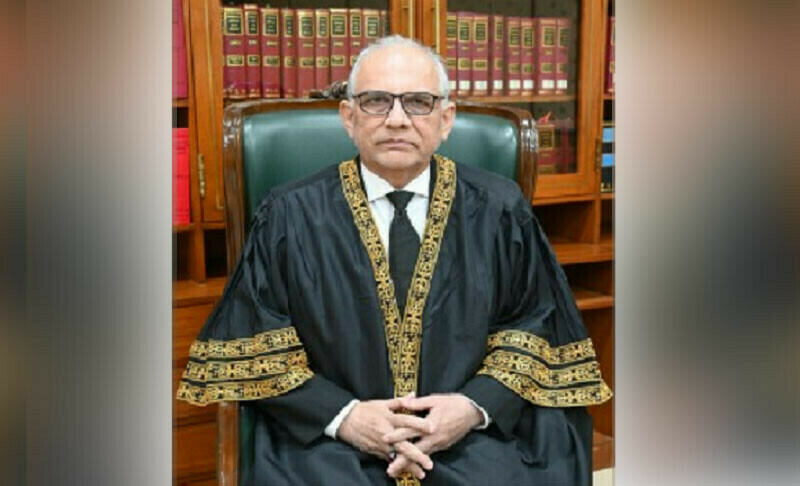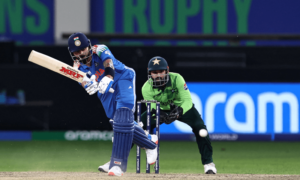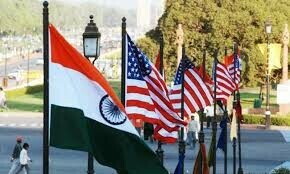• Rights of terror victims ‘largely overlooked’, Justice Afghan notes
• Military courts working under parliamentary sanction, observes Justice Aminuddin
• Country cannot have both normal and military courts trying civilians, Imran’s lawyer argues
ISLAMABAD: Justice Syed Hasan Azhar Rizvi, a member of the Supreme Court’s Constitutional Bench (CB), on Monday expressed concern over the trend of targeting military installations rather than police stations, political leaders or Governor House when a political party had grievances.
If this tendency is not curbed, it could push the country towards anarchy, feared Justice Rizvi and emphasised the need for stopping this propensity to prevent such incidents in future.
Headed by Justice Aminuddin Khan, the seven-judge CB had taken up intra-court appeals against the Oct 23, 2023, order of nullifying the trial of civilians by military courts in the May 9 violence case.
When Justice Jamal Khan Mandokhail asked whether this could be accepted as a basis to approve every wrong, PTI founder Imran Khan’s lawyer Uzair Karamat Bhandari cited American psychologist Abraham Maslow’s quote: “If the only tool you have is a hammer, you tend to see every problem as a nail”.
Justice Naeem Akhtar Afghan said law and order in Balochistan and Khyber Pakhtunkhwa had deteriorated so much that it was affecting other provinces. In such circumstances discussions in courts often focused on the fundamental rights of those accused of terrorism, while the rights of victims were largely overlooked, Justice Afghan regretted, noting that present appeals were a case of first impression.
The observation came when senior counsel Bhandari urged the CB to seek guidance from what had been determined by the top court in earlier decisions like in cases of F.B. Ali, Sheikh Liaquat Hussain and District Bar Association. The principles drawn from these cases also applied to the present case since it was not possible to have a parallel judicial system — normal civilian courts and military courts trying civilians.
Justice Mandokhail questioned whether awarding death sentences had ever stopped murders. “Why should we not prevent terrorism before it happens,” he wondered.
Justice Aminuddin observed that an impression has been created as if the duty to try the accused in military courts has been taken by the armed forces by themselves, while it was the duty cast by parliament.
Was parliament not bound by the Constitution, wondered Justice Mandokhail.
However, Justice Muhammad Ali Mazhar observed that the custody of the accused was sought by the military after the National Assembly had passed a resolution.
“It is all wrong,” the counsel stressed, regretting that parliament had become a place from where people were arrested while offering prayers in the mosque after switching off lights.
‘Did Imran condemn May 9?’
Justice Rizvi, while pointing towards the counsel, wondered whether his client had ever condemned the May 9 incident in his written response to the court.
The counsel replied that the PTI founder had condemned the May 9 events in his miscellaneous submissions in which he clearly stated that those responsible should be punished. The statement was part of the record, he said, but also explained that condemnation on part of the PTI head did not mean that he also accepts the official stand in this regard.
Justice Rizvi observed that the condemnation was a good step.
Justice Mandokhail wondered could a prime minister stay in office beyond his fixed term.
The counsel stated that the PM, who comes for five years, cannot stay for six years, adding that “we have many presidents who went beyond five years”.
Justice Mandokhail observed: “And we have also validated their tenure.”
The counsel argued that when military courts were established, the then government had through the 21st amendment provided constitutional cover to try terror suspects despite the fact that the F.B. Ali case was never challenged in court.
“Why the constitutional cover was needed? Because in the current dispensation or the 1973 Constitution, military courts to try civilians cannot prevail,” he emphasised.
He recalled that in the F.B. Ali case, Article 245 was not discussed since there was no such provision available. He added that former Justice Azmat Sheikh, in the 2015 District Bar Association case, had examined the judgement within the framework of Article 245, which was endorsed by eight other judges by stating that constitutional cover in the shape of the 21st amendment did not affect the Constitution.
Published in Dawn, February 25th, 2025
- Desk Reporthttps://foresightmags.com/author/admin/











